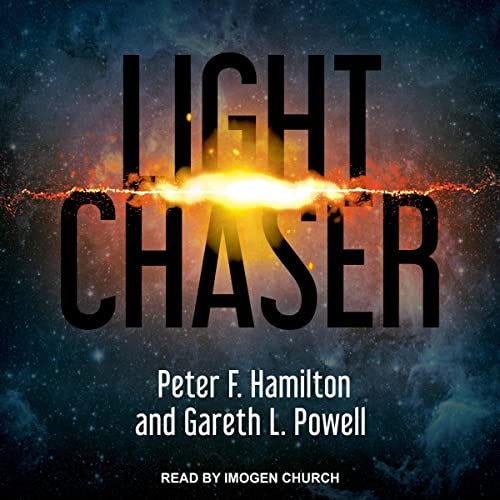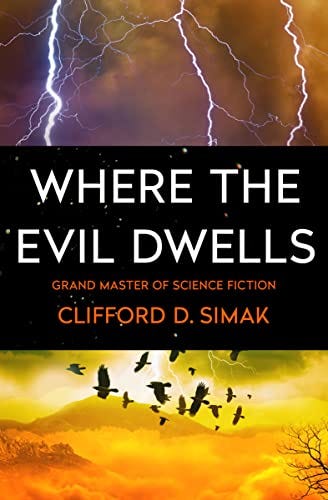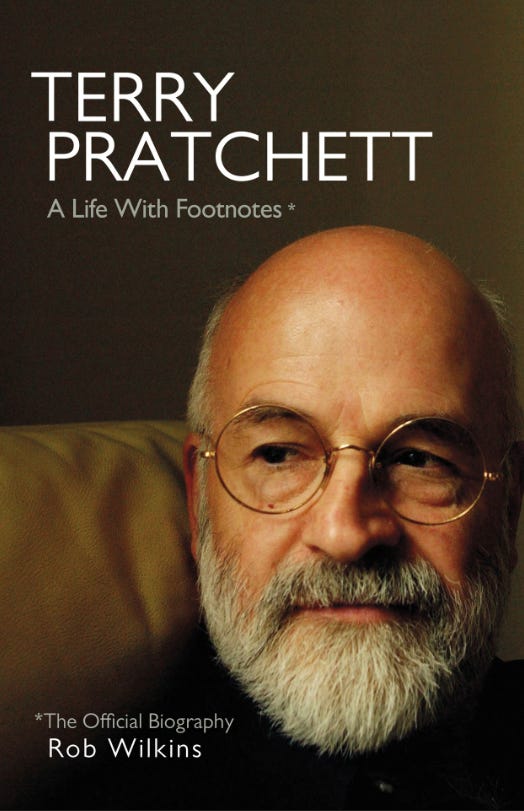Readinary Issue 2023-03
The Sleepless Creative
READINARY ISSUE 2023-03
THE SLEEPLESS CREATIVE
There is a set of standard questions asked if someone suspects they might have ME/CFS (Myalgic Encephalomyelitis/Chronic fatigue Syndrome). Take this quiz at solvecfs.org https://solvecfs.org/me-cfs-long-covid/do-i-have-mecfs-quiz/
Question 1: Are you experiencing profound fatigue that substantially decreases your ability to function?
Question 2: Has your profound fatigue persisted for more than six months?
Question 3: Do you experience post-exertional malaise after physical or mental exertion or normal daily activities?
Question 4: Do you experience unrefreshing sleep?
Question 5: Are you experiencing cognitive impairment?
My answers to those questions: Yes. In every case, yes.
My doctor hasn't given me a ME/CFS diagnosis. Everyone is different. There isn't a definitive test to show ME/CFS. It's more of a 'ruled everything else out' sort of situation.
I suspect I suffer from mild ME/CFS. I'm able to function most days. Am I fatigued? Yes. Do I bike, run, train for grueling, crawl-through-the-mud Spartan races? Not any longer. If I sleep, it isn't usually refreshing. Doing too much on a day when I feel better leads to crashes where I feel sick, like with the flu, and exhausted. "Too much" can be as little as some light home repair, picking up groceries, or stress at work. When I'm fatigued during the day, I have trouble focusing. I fight my body telling me to nap. Sometimes I finish work and immediately take a nap. Then I'll get up for a few hours and go to bed early.
This has gone on for the past decade. I've worked on my sleep environment. I've taken a different position at work, one with less stress where I can focus, and work from home. I pace myself. Lacking a diagnosis, I do the best I can to manage and usually do pretty well. That's why I suspect that I'm dealing with mild ME/CFS.
My fear?
That it'll get worse. For some, it's a disabling disease, impacting their ability to work, or in severe cases, even care for themselves. Because of that, I'm trying (again) to work with my healthcare providers on a diagnosis. If not ME/CFS, then what is going on? Is it "all in my head?" No matter what the case, I want to do what I can so I'll be around for my family for many decades to come. I'd like to still be writing and creating art in fifty years.
TIME TRACKING
"WHEN I WOKE UP, I was mostly all there again, and up to 80 percent efficiency and climbing.
Martha Wells. All Systems Red (Kindle Locations 163-164). Tor.com. Kindle Edition.
Unsurprisingly, I also have an efficiency rating. I track my time and progress with multiple methods. My favorite? Timeular. I'm using it right now, tracking time spent writing this issue. RescueTime also runs in the background. It automatically tracks time spent on the computer—not necessarily the same thing as Timeular. It's more granular, tracking applications and websites.
Not only do these run on my PC, they're also on my Mac, and my phone. With Timeular I set higher level category goals for each week. I flip my tracker and focus on what I'm working on. If it takes using several different applications and websites, RescueTime provides insights on my process and time spent.
RescueTime also acts a bit as a governor module, if set up to do so. It tracks everything and if I spend too much time on distracting websites or apps, it triggers a "Focus Time" session—blocking distractions for the period set. This is my past-self telling me, "Hey, you wanted to get things done."
I can be irritating that way.
I've previously shared how I'm using Notion to organize, track, and plan my creative work. On the 1st, I sat down and used it and my trackers to evaluate my progress in January.
I wrote some fiction words. I sent out this newsletter. Furthered my learning with online courses. Filed business taxes. Did a bit of artwork. Read books in a variety of formats. Worked a full-time job. Spent time on all the normal life things, including streaming some media.
All of that was fine. No problem at all. My tracking revealed how much time I spent in January working on my creative goals. 24h 57m. Not what I wanted. Much of that appears due to fatigue. In my current job as a librarian, I do a lot of data analysis, coding, and project management. I get those brain cells working. It doesn't leave much in the tank.
It'd be easy to write it all off to fatigue and the need to pace myself. Ah, but that's where the trackers' data shows me how much time I spent on distractions and when I'm distracted. Things like watching YouTube in the morning before work. Maybe not the best time for that video on the history of China's space program? I mean, it's interesting, but I didn't need to watch it this morning.
The tracking software also shows which of my productive categories need more attention. Using all that data in my evaluation, I sat down and refined my goals and category targets to come up with the following in Notion:
Actual time spent on each category comes from Timeular. My target for the month? 42 hours on my productive categories. After tracking my time this month, I'll refine the picture more. I’m already in overtime on some categories. Even with work, life, and fatigue, I believe these are achievable targets that'll move me toward my goals and dreams.
WHAT'S NOT INCLUDED
I'm not including self-imposed deadlines for most things. I find deadlines increase my stress, which makes it harder for me to function. And it's difficult to separate what I think I "should" be able to do, or "want" to do, from what is achievable. Frequently given advice to publish new content every week, twice a week, every day, month, whatever schedule but be consistent, do whatever it takes, including sacrificing sleep to meet deadlines—that's all destructive behavior for me. It simple ensures that I'll crash and be unable to function.
Instead, I'm focusing on achievable goals based on time spent. Once I have content (books, videos, artwork, merch, etc.) ready to release, then I can put those release dates on the calendar. When the project is done—not before. I'm thinking of it more as "seasons," as in a season of a TV show. My objective is to create each new season, plan when I'll release it once it's done, and then release it on that schedule. So I'll have a consistent release schedule during the "season." I'll share more about the first season when I know what's going to be included, when it’ll happen, and how long it’ll last.
BOOKTALK: WHAT I'M READING
In audio, I'm currently listening to Light Chaser by Peter F. Hamilton and Gareth L. Powell, narrated by Imogen Church.
A shorter book than my last audiobook by David Brin, only a bit over four hours long. In Light Chaser, Amahle discovers the static universe she's enjoyed for thousands of years isn't quite what she thought and risks everything to get at the truth.
In e-book format, I'm continuing to read The 1619 Project and when I need a bit of a break, I've been reading Where the Evil Dwells by Clifford D. Simak.
A lighter fantasy from Simak, set in an alternate present where the renaissance sputtered out, the "Evil" (ogres, unicorns, goblins, dragons, and various other monsters), stands between Rome and the 'barbarians'. A small party heads into the Empty Lands inhabited by the Evil to retrieve an artifact and to discover if Harcourt's love, Eloise—lost years before—is somehow still alive in the Empty Lands.
In print, I'm mostly focused on Terry Prachett: A Life With Footnotes by Rob Wilkins.
Mr. Wilkins worked as Terry Pratchett's personal assistant for many years, helping with all of the work that grows with a writer of Pratchett's success. I'm about a third the way through the book and it is one of the most enjoyable things I've read recently. Pratchett, as a prolific writer and illustrator, is one of my favorite creators.
That's it for this issue of READINARY. I hope you and those you love are well and stay safe. Find a good book in whatever format you want and take the time to enjoy it. These little marks on the page are thoughts and dreams encoded and transmitted into the reader's head. A.I. might mimic the marks, but it has no thoughts or dreams to share. If you're interested in supporting my work, you can become a paid READINARY subscriber, pick up copies of my books, books I share by other authors (I earn a small affiliate commission, at no cost to you), watch my videos, and share this newsletter.
If you want. No problem if you don't. I'll likely be back in a couple weeks with another issue. Until then.
Best wishes, always—Ryan








